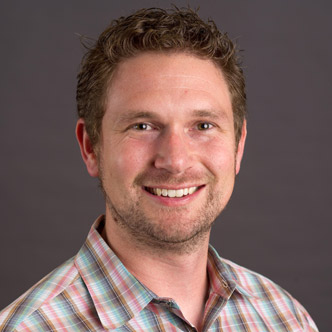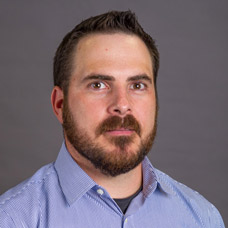Biodiversity Projects Headed by A-State Researchers
JONESBORO – Two scientists at Arkansas State University are very enthused today about the long‑term biodiversity research opportunities that will result because of their related National Science Foundation-funded projects.
Dr. Travis Marsico, associate professor of botany, wrote the successful proposal to support the "Upper Delta Region Biodiversity Scholarship Program" through the National Science Foundation's initiative called S-STEM, which stands for Scholarships in Science, Technology, Engineering and Mathematics.
Arkansas State and two other institutions will work cooperatively to recruit and retain students in STEM fields.
The project was designed to help serve a region with a high proportion of first-generation college students. In addition to campus studies, faculty will partner with natural resource management professionals from state natural heritage or natural resource conservation agencies to provide hands-on, field-based workshops.
The funding opportunity will directly result in important research associated with biodiversity discovery and conservation within this region.
Dr. Brook Fluker, assistant professor of aquatic ecology, will lead development of the Arkansas Center for Biodiversity Collections, a proposal funded through NSF's Collections in Support of Biological Research (CSBR). The project will unify A-State's eight collections into common spaces, making them much more accessible.
Marsico explained, “The Delta Region of Arkansas has more biodiversity than people generally think, and large tracts of bottomland hardwood forest is protected for conservation. Yet, at least for plants, surprisingly little is known about species distributions in this region. Students working on research projects will make important discoveries about biological diversity and distribution, and this work will help set conservation priorities for remnant natural habitats such as patches of prairie in the Delta and seeps and bogs on Crowley’s Ridge."
He added, "By utilizing historical specimens and comparing those to contemporary collections, research can focus on important topics associated with environmental changes such as outcomes of habitat loss, species invasions, and climate change. Wildlife and biodiversity conservation is more important than ever before. Effective conservation strategies begin with appreciation for and understanding of species natural history. Through direct research, education of university undergraduate and graduate students, and outreach to the local community, we will build a regional center committed to preserving and promoting biodiversity.”
Noting A-State has a registered student organization, the Natural History Collections Curation Club (NHC3), Marsico also said, "We have strong student interest in the natural history collections. The combination of research and practical specimen preparation, handling, and digitization skills will make these students competitive for top jobs in this field."
According to Fluker, "Improved access to the ACBC will increase opportunities to engage students in understanding the importance and utility of natural history collections, as well as enhance research opportunities for A‑State students and the broader scientific community."
Part of the project calls for new museum-quality shelving, storage cabinets and a database system that will provide improved access for students and researchers. Fluker's grant is for $478,094 over a three-year period. He also is a co-PI on Marsico's project.
Project collaborator Dr. Stan Trauth, professor of zoology, added, “University biocollections are historic repositories of nature. They document the present and past natural histories of organisms. They help provide an understanding of nature that cannot be measured monetarily; their inherent value spans time and geographic space.”
Biodiversity collections at A-State include mammal, bird, reptile and amphibian, fish, mussel, aquatic macroinvertebrate, insect, and plant specimens. These individual collections will be unified under the ACBC.
# # #
Learn more about the two related projects by clicking here.







